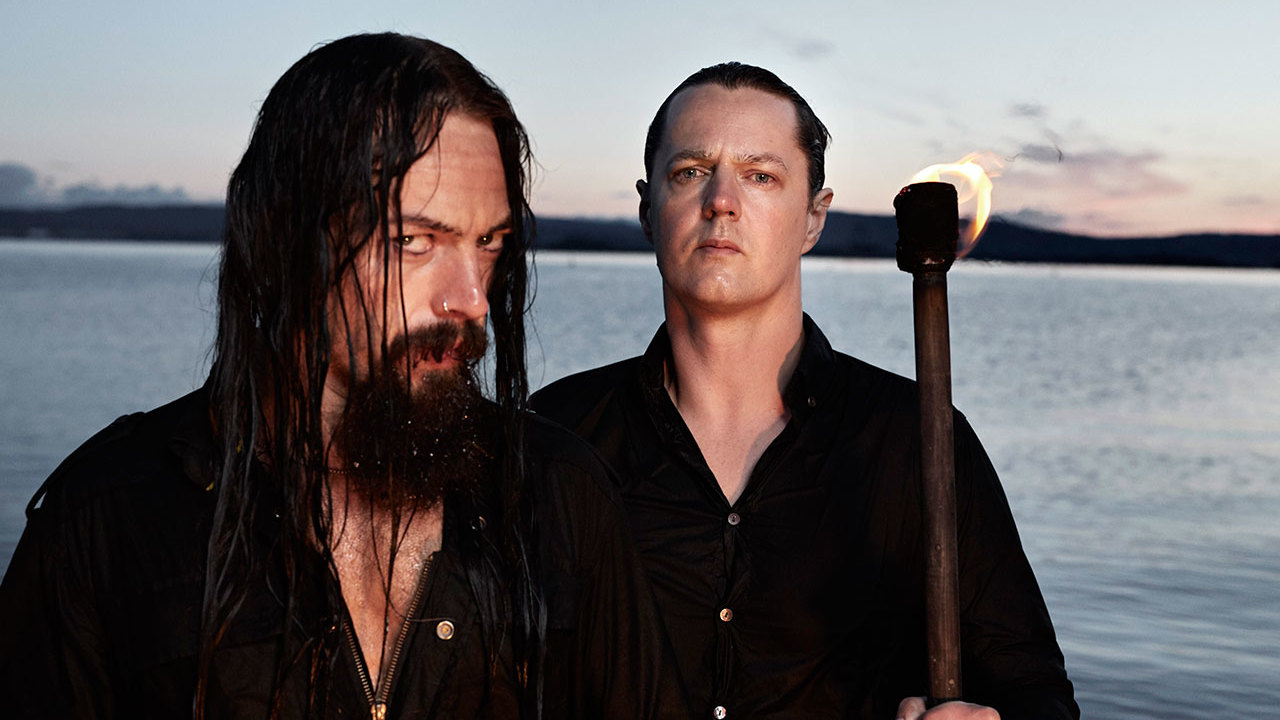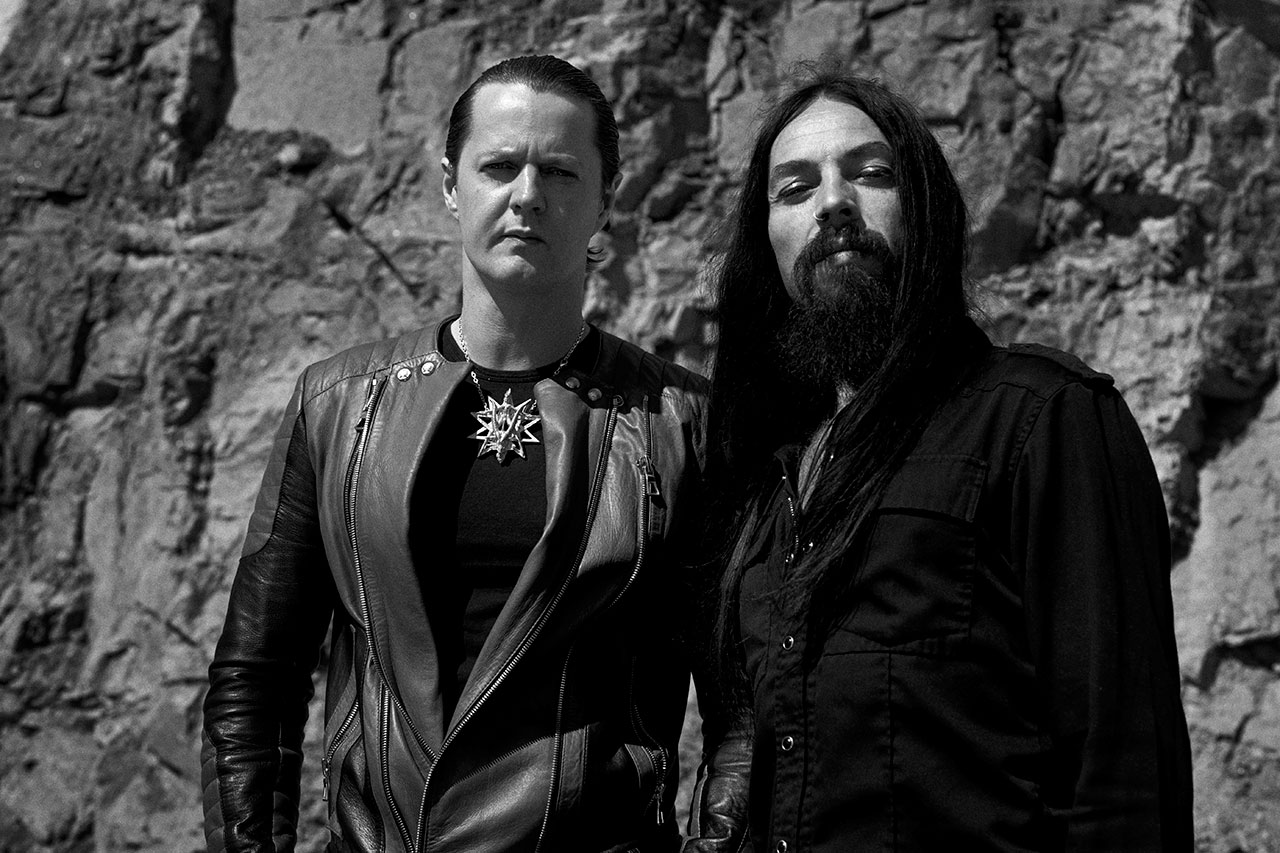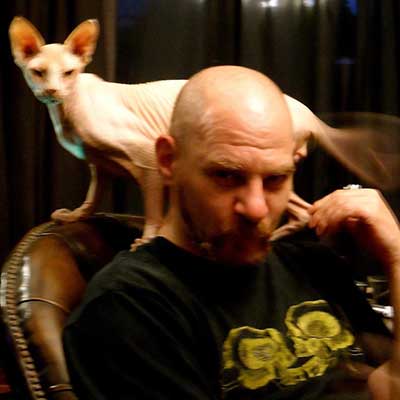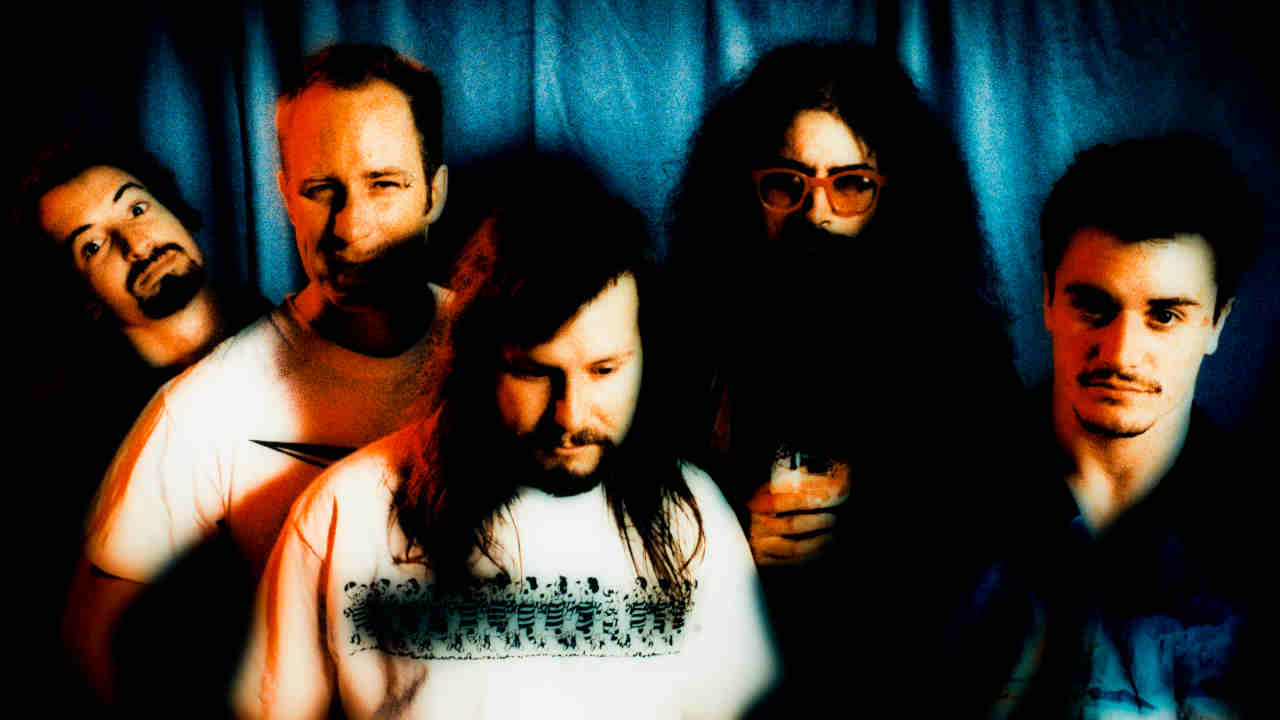The emotion and spirituality of Satyricon's new album Deep Calleth Upon Deep
Satyricon's Satyr talks about what went in to creating his new album Deep Calleth Upon Deep

It’s tempting to think that Satyricon have never been central to the history of black metal, so much as that they’ve been a parallel development – an entity with its own sense of destiny. Not for them the now familiar tale of glory/wane/experiment/‘return to form’; not for them the regressive attachment to the days of ‘true’ black metal, when what you should be asking of each successive album is that it captures/defines its own moment in time; and neither for them all the arguments and needling that have riddled the genre – has it spread itself thin? Is avant-garde black metal the answer? It’s all redundant next to a band as self-possessed as this.
Maybe there’s an explanation to be found in the fact that the dynamic between two members, Satyr Wongraven and Frost, is less subject to factionalism than a full band, but it’s their independent spirit and the sense that each album has further plotted a journey that’s been tethered to Satyr’s will rather than genre conventions that gave them a fanbase stretching far beyond the confines of the scene.
So if there was a particular level of curiosity about where Satyricon’s new album Deep Calleth Upon Deep was going to go, obviously part of that was wondering how Satyr was going to respond to the diagnosis of a thankfully benign brain tumour in 2015, and the subsequent change of lifestyle he had to undergo. But also, after the slight curveball of their last album in 2013, definitively self-titled to boot, musically the maps were harder to gauge.
As it happens, to some extent Deep Calleth Upon Deep proves orientating, in both the efficiently strident underpinning and emotional pull of tracks such as To Your Brethren In The Dark and The Ghost Of Rome, but also exhilaratingly axis-shifting. Within you’ll find subtle progressive detours, operatic vocals mixed to add shade rather than ostentatious flourish and undercurrents of classical instrumentation, all making clear that Satyricon’s forward momentum remains unchecked, and that the ride is now more scenic than ever. In the run-up to the album’s release, we sat down with Satyr to discuss the making of his album, battling against the odds, and why taking a wrong turn can be a positive.
After the self-titled album, Deep Calleth Upon Deep has gone to some unexpected areas. It seems to have opened up a few new channels, musically and spiritually.
“It ended up somewhere other than I thought too. I’m not the type of songwriter to write finished songs and then select them, what I do is that I work on a different quarter of a song, half a song or 3⁄4 of a song, and then as we get closer to recording, then a process where I say, ‘Alright, let’s not keep pursuing this one and let’s just make sure we get this, because we can’t let this one go.’ On this record, I actually had more half-songs and more three-quarter songs than I ever had, but I think the reason for that was, that in the beginning there was a lot of really aggressive stuff – and there’s still a lot of really aggressive stuff – but perhaps partially because of my health scare, I felt that maybe this has to have a stronger spirituality. Maybe it felt a little superficial just to do something fast and aggressive, and I needed to have something with a more substantial depth. And that made me not too keen on pursuing a couple of things that to me seemed a little senseless because of my new perspective.
“Frost said about one of the songs, ‘It’s interesting that you would let this song go, because most bands would have felt fortunate to have such a song’. I thought to myself, why did we let that song go? This is a really good song. And then I started thinking about it, and we let that song go because even though it was a really good song, it didn’t feel special. It just felt like a really good song. And I don’t know why it didn’t feel special, but the fact that it didn’t made me lose interest in it.”
Sign up below to get the latest from Metal Hammer, plus exclusive special offers, direct to your inbox!
Did you feel like the songs had to fit in a certain framework for the album? Was there a spiritual space that the songs needed to exist in?
“Surely. Let’s say I had a couple of songs pulling in the same direction and I would say, okay, this is something that I have to express, I don’t need to do it twice. So I’ve got to go with one of these, not both. They’re all there to also fill some sort of purpose in the bigger picture. In the long run what’s going to pay off is to make a record as a musical journey, as opposed to a collection of songs. I still think the same way, so the sequencing for this record was the hardest we’ve ever done. I think we did five different sequencings for the record that I kept playing back and forth to see what felt more together than the other versions.”
There are some interesting lyrics particularly in the first song, Midnight Serpent, about pulling up roots and we got the impression that you were at a crossroads with this album. You said on the press release that it was either going to be the beginning of something or the end of it. Did you feel that this album inhabited a different space from your other records? Do you feel like this is a new phase?
“Well, I was very hesitant about the stuff in the press release, but I told them to just leave it in there because when I was asked in the making of the press release, that’s what I said. That’s what I felt like. But having said that, I don’t have any great answer because those were just the things that travelled through me throughout the album process. A lot of the time I would just sit there and I would think to myself things like I must warn you that even if you feel that you are doing fine, it’s most likely that things will move in a bad direction, and we should consider these things and planning surgery and things like that. And obviously, it is possible that you all of a sudden get a lot better, but it’s important that you understand that that’s hope, not science. I thought oh God, that sounds terrible, ha ha!
“I would have things like that spinning around in my head, and I would sit there and Frost would say, ‘Well, I think it sounds good’, and I would tell him ‘I think it sounds like fucking shit and I don’t want to hear it, and when you come back tomorrow I don’t want to hear anything that resembles what do you played today’. A lot of the time I would think, what if this is the last thing I do? And then other times I felt this is possibly the beginning of something new, so it has to be edgier than what we are doing right now, and we have to change and improve upon this particular part.”
- Satyricon announce 2017 European tour
- Satyricon - Deep Calleth Upon Deep album review
- My Life Story: Satyr from Satyricon
- Read Classic Rock, Metal Hammer & Prog for free with TeamRock+
You and Frost have been together for so long now, there must be an unspoken understanding that you do share. Does he get the general concept when you want to go somewhere different?
“I find it to be always so fascinating; one thing that will never ever change is when we work on an album he is resisting because he doesn’t see the bigger picture. I tell him, even if you can’t hear all the parts now, but on the last record you were also resisting, and the one before that and the one before that, but you were really really pleased with the outcome. He goes, yes. So how about you put a little faith in my ability to pull this off and stop resisting and start working with me? But that friction will always be there. And now he is totally in love with Deep Calls Upon Deep, but the next thing that we enter into it will be the same, ha ha!”
There is a lot of strong imagery in your lyrics and that in itself is open to interpretation, but did you have to go into some kind of mental space for this album?
“Absolutely. Not only in writing but also in performing it. As an example, Black Wings And Withering Gloom, my main source of inspiration was the stories that I’ve read about the resistance forces during the invasion of Norway in WWII. Those who were up in the far north were completely under-equipped and, in extremely cold conditions, fighting a German army that had the best technology in terms of weaponry, and lots of ammunition and better uniforms and they were just a lot more prepared. When I was recording the vocals for it, I collected lots of photos of that actual warfare in the mountains. I wanted to somehow feel a little bit of what they felt when I was going to record the vocals, and that made sense to me.”

There is a lot more emotion in this album but there are some familiar signposts to this record as well.
“I never think in terms of comparing my music to things that I’ve done in the past. I must emphasise that I don’t mean this in a disrespectful way, but I don’t understand it when Slayer are saying, ‘This is more back to Reign In Blood’. I don’t understand it when Metallica say that Death Magnetic is back to longer songs. If they feel that way, that’s okay and I’m not saying it’s wrong. What I am saying is I don’t understand it because I don’t think like that. I don’t ever think, ‘Maybe I’ll try to do something more in the style of K.I.N.G. because that seemed to work well’, or ‘How about something more anthemic like Mother North, people seemed to enjoy that’. I think, ‘What does this album need, what does this song need?’, and I think pragmatic, boring thoughts about gear, not style.”
Having said that, do you feel you have enough distance yet to reflect on Deep Calleth Upon Deep as a whole?
“I play the record every day, trying to think about what we can do live. And when I hear it, what I appreciate the most about listening to it is that to me it doesn’t feel earthly, if you know what I mean. It always takes me to another place. There are some exercises that I’ve been doing, like for example, rowing, and if you do it with proper technique it’s hard. But every time I do a rowing session I listen to the album because I start auto-piloting on that painful exercise because I immediately drift off into the world of Deep Calleth Upon Deep. When that album’s done I’ve only got 15 minutes left.
“It’s the same thing when I drive around in my car. Yesterday I was picking up my son at his uncle’s place and I was just listening to the album driving and I was realising that I’d missed my exit, ha ha! It has an affect on me when I get drawn into its world. That’s really the best way I can feel about anything.”
Satyricon’s new album Deep Calleth Upon Deep is out September 22, and is available to pre-order now.
In the new issue of Metal Hammer, we find out how Satyricon’s Satyr defied the odds to come back fighting with their new album.
Having freelanced regularly for the Melody Maker and Kerrang!, and edited the extreme metal monthly, Terrorizer, for seven years, Jonathan is now the overseer of all the album and live reviews in Metal Hammer. Bemoans his obsolete superpower of being invisible to Routemaster bus conductors, finds men without sideburns slightly circumspect, and thinks songs that aren’t about Satan, swords or witches are a bit silly.

